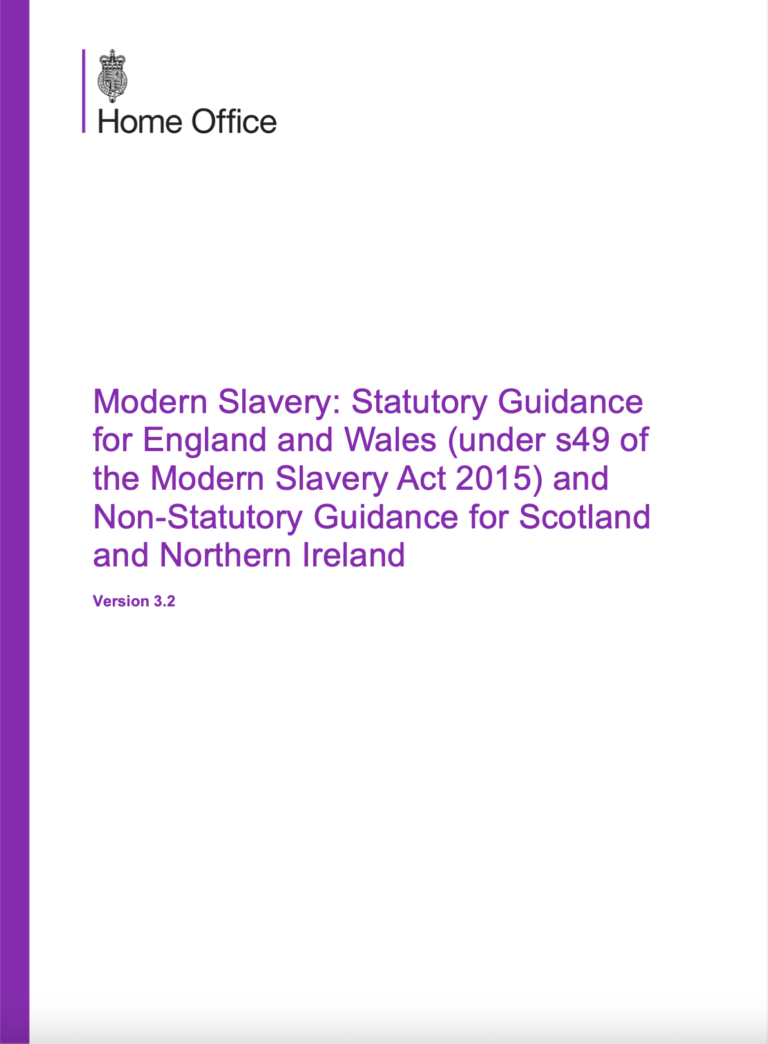‘The best idea is to think of the victim in terms of rehabilitation and work towards it. You are working with people who have been in an environment where they were slaves; they now need to learn how to be in an environment where they are human. See how institutional efforts can be addressed in this direction: Staff need to be able to assist and guide victims as specific individuals; caring for each person requires more than protocols and appointments.’ Michael, 40, survivor of modern slavery
1.1. Modern slavery is a serious crime that violates human rights. Victims are forced, threatened or deceived into situations of subjugation, degradation and control which undermine their personal identity and sense of self.
1.2. Identification, protection, care and support for victims of modern slavery is at the heart of this Statutory Guidance. Professionals should work proactively with a view to preventing modern slavery in all its forms. They should be trained to take appropriate action and provide possible victims with appropriate protection and support, based upon their individual needs. It is essential that professionals recognise that survivors of modern slavery may be at risk of re-trafficking and further harm.
1.3. Collaborative partnerships, multi-disciplinary and multi-agency working are fundamental to ensure that victims are identified, protected and safeguarded. Activities should be carried out in partnership with other agencies to provide victims with integrated support and access to their rights and entitlements.
1.4. It is important for professionals to understand the specific vulnerability of victims of modern slavery and utilise practical, trauma-informed methods of working which are based upon fundamental principles of dignity, compassion and respect. Victim’s voices must always be heard, and their rights respected.
1.5. The Government is introducing minimum standards of care in all future contracts providing support to adult victims of modern slavery and an associated inspection regime based on The Slavery and Trafficking Survivor Care Standards which contain detailed practical advice on all aspects of working with victims of modern slavery, and are available here.
1.6. A reference group has been established by the Government to help ensure this Statutory Guidance is systematically reviewed and updated. The group consists of a range of multi-disciplinary experts from across the anti-slavery sector and statutory services who can provide expert advice on potential updates regarding identification, support and care for victims of modern slavery. Ownership of the Statutory Guidance

